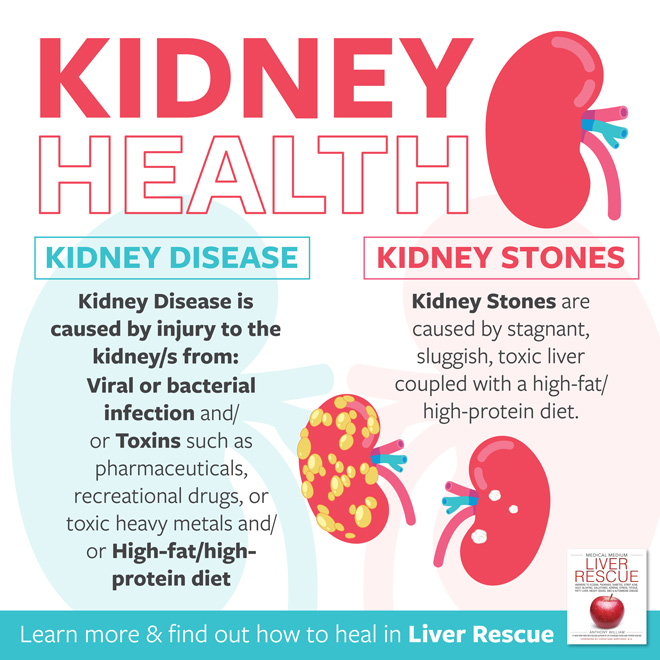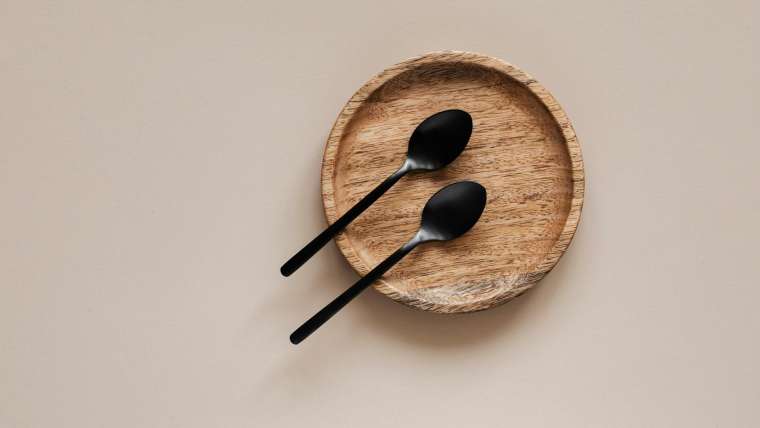Are you experiencing back pain, fever, or frequent urination? Learn all about kidney infections and how to care for them.
Table of Contents
- Introduction to Kidney Infections
- Understanding Our Kidneys
- What Causes Kidney Infections?
- Symptoms of a Kidney Infection
- Reasons Some People Get Kidney Infections
- How to Tell if You Have a Kidney Infection
- Treating Kidney Infections
- Preventing Kidney Infections
- What Happens Without Treatment?
- Looking After Someone With a Kidney Infection
- Games and Activities for Learning About Kidneys
- Summary and Recap
- FAQs
Introduction to Kidney Infections
Do you know what a kidney infection is? It’s different from a regular urinary tract infection. Today, we’re going to learn all about kidney infections, why they’re important, and how you can spot the signs.
When bacteria sneak into your kidneys, they can cause an infection. This can make you feel sick and uncomfortable. Let’s find out more about this tricky infection and how we can take care of our kidneys.
Understanding Our Kidneys
Our kidneys are two small bean-shaped organs located in the lower part of our back, on either side of the spine. They play a critical role in keeping our bodies healthy by filtering our blood, removing waste products, and maintaining the right balance of water and minerals. Think of them as your body’s natural cleaners!
One of the kidney’s main jobs is to make urine, which is a liquid waste product that our bodies don’t need. By producing urine, the kidneys help regulate our body’s fluid levels and get rid of harmful substances. So, in essence, our kidneys act like a filtering system, making sure our bodies stay clean and healthy.
Every day, our kidneys filter about 120-150 quarts of blood to produce about 1-2 quarts of urine. That’s a lot of work for such small organs! Because of their crucial role in keeping us healthy, it’s essential to take care of our kidneys and understand their importance.
What Causes Kidney Infections?
So, you might be wondering, what actually causes kidney infections? Well, let’s break it down in a way that’s easy to understand. Kidney infections are usually caused by bacteria. These tiny microscopic creatures can sneak into your kidneys and cause all sorts of trouble. But how do they get there in the first place? Let’s find out!
Image courtesy of www.quora.com via Google Images
How Bacteria Leads to Kidney Infections
Imagine bacteria as little troublemakers that can find their way into your body through various ways. One common route is through the urinary tract, which is like a little tunnel that helps your body get rid of waste through urine. When bacteria make their way up this tunnel and into your kidneys, that’s when a kidney infection can happen. It’s like a sneaky invasion that your body has to fight off!
How Urinary Tract Infections Are Related
Now, you might have heard about urinary tract infections (UTIs) before. These are infections that can affect the bladder or the tubes that carry urine. If bacteria causing a UTI travels up to your kidneys, it can lead to a kidney infection. So, it’s important to take care of your urinary tract and prevent UTIs to avoid a more serious kidney infection down the road.
Symptoms of a Kidney Infection
When it comes to kidney infections, it’s important to know the signs that your body might be fighting off an infection. Here are some symptoms you should look out for:
1. Lower Back Pain
If you start feeling pain in your lower back, especially on one side, it could be a sign of a kidney infection. The kidneys are located in your lower back, so any discomfort in that area should not be ignored.
2. Other Symptoms to Watch For
Aside from lower back pain, other signs of a kidney infection might include fever, chills, nausea, vomiting, frequent urination, and cloudy or foul-smelling urine. If you notice any of these symptoms, it’s essential to talk to an adult and seek medical help.
Reasons Some People Get Kidney Infections
When it comes to kidney infections, there are several reasons why some people might be more prone to getting them. Let’s explore a few common factors that can increase the risk of developing a kidney infection.

Image courtesy of marthataralee.medium.com via Google Images
Not Drinking Enough Water
One important factor that can contribute to kidney infections is not drinking enough water. Water helps flush out harmful bacteria and toxins from your body. When you don’t drink enough water, these bacteria can build up in your urinary tract and lead to an infection in your kidneys.
Having High Blood Pressure
Having high blood pressure can also play a role in increasing the likelihood of getting a kidney infection. High blood pressure can put extra strain on your kidneys, making them more susceptible to infections. It’s important to keep your blood pressure under control to help protect your kidneys.
The Role of Kidney Stones
Kidney stones are hard deposits that form in your kidneys and can block the normal flow of urine. When urine is unable to flow freely, it can cause bacteria to build up and lead to an infection. If you have kidney stones, you may be at a higher risk of developing a kidney infection.
How to Tell if You Have a Kidney Infection
When you think you might have a kidney infection, it’s essential to pay attention to your body’s signals. Here are some ways to tell if you have a kidney infection:
Signs and Symptoms
If you experience symptoms like lower back pain, frequent urges to urinate, burning sensation when you pee, cloudy or foul-smelling urine, nausea, vomiting, fever, and chills, you might have a kidney infection. Pay close attention to how you’re feeling and let an adult know if you notice any of these signs.
Doctor’s Diagnosis
Doctors can perform simple tests to determine if you have a kidney infection. They might ask for a urine sample to check for bacteria or blood in your urine. Additionally, they might recommend a blood test to see if your body is fighting an infection.
Treating Kidney Infections
When someone is diagnosed with a kidney infection, the doctor will recommend a treatment plan to help get rid of the infection and make the person feel better. One common way to treat a kidney infection is by taking antibiotics. These are special medicines that fight off the bacteria causing the infection in the kidneys.

Image courtesy of www.medicalmedium.com via Google Images
Sometimes, if the infection is severe, a person might need to go to the hospital to receive stronger antibiotics through an IV. This is a tube inserted into a vein to deliver the medicine directly into the bloodstream. It helps the antibiotics work faster and more effectively to get rid of the infection.
In addition to antibiotics, doctors may also keep an eye on the person’s blood pressure. That’s because kidney infections, especially if they are severe, can sometimes affect blood pressure. By monitoring blood pressure regularly, doctors can ensure that it stays at a healthy level while treating the infection.
Preventing Kidney Infections
When it comes to kidney infections, prevention is key to keeping your kidneys healthy and happy. By following these simple tips, you can possibly avoid kidney infections and even keep your blood pressure in check.
Tips for Kidney Health:
1. Stay hydrated: Drinking plenty of water helps flush out harmful bacteria from your urinary tract and kidneys, reducing the risk of infections.
2. Practice good hygiene: Wash your hands regularly, especially before eating or after using the bathroom, to prevent the spread of bacteria that can cause infections.
3. Avoid holding in urine: When you feel the urge to go, make sure to use the bathroom promptly. Holding in urine can lead to the growth of bacteria in your urinary tract.
4. Eat a healthy diet: Consuming a balanced diet rich in fruits, vegetables, and whole grains can support overall kidney health and reduce the risk of infections.
Exercise for Healthy Kidneys:
Regular physical activity not only benefits your overall health but can also support kidney function. Engaging in activities like running, swimming, or playing sports can help maintain a healthy weight and promote proper blood flow to your kidneys, reducing the risk of kidney infections.
Monitoring Blood Pressure:
High blood pressure can put a strain on your kidneys, increasing the likelihood of infections. By monitoring your blood pressure regularly and following any recommendations from your healthcare provider, you can help prevent kidney infections and protect your overall kidney health.
| Kidney Infection 101: Symptoms & Care | |
|---|---|
| Symptoms | Care |
| Fever | Stay hydrated and rest |
| Pain in the back or side | Take prescribed antibiotics |
| Frequent urination | Avoid caffeine and alcohol |
| Blood in urine | Apply a heating pad to the affected area |
By incorporating these tips into your daily routine, you can take proactive steps to prevent kidney infections and promote the well-being of your kidneys for years to come.
What Happens Without Treatment?
When a kidney infection is left untreated, it can lead to serious complications and cause more problems for your body. The infection can spread and affect other parts of your urinary system, making you feel even sicker. Over time, the infection can also damage your kidneys, which are essential for filtering waste and keeping your body healthy.
Image courtesy of www.quora.com via Google Images
If the infection continues to get worse without treatment, you might experience increased pain in your lower back or sides, where your kidneys are located. This pain can become unbearable and make it hard for you to do everyday activities like playing outside or going to school.
Without the proper care and treatment from a doctor, your body may struggle to fight off the infection on its own. This can lead to a longer recovery time and may even require more intense treatments later on, such as taking stronger medications or needing to stay in the hospital.
Looking After Someone With a Kidney Infection
When a friend or family member has a kidney infection, it’s important to show them care and support. Here are some ways you can help:
Frequent Check-ins
Make sure to check in on your loved one regularly to see how they’re feeling. Ask if they need anything and offer your help whenever necessary.
Encourage Rest
Encourage the person with the kidney infection to take plenty of rest. Getting enough rest can help the body heal faster.
Offer Healthy Meals
Prepare and provide healthy meals for your loved one. Nutritious foods can help boost their immune system and aid in the recovery process.
Hydration Reminder
Encourage the person with the kidney infection to drink plenty of water. Staying hydrated is crucial for flushing out toxins from the body.
Assistance with Medication
If the person needs to take medication, help them remember their doses and ensure they are following the doctor’s instructions correctly.
Provide Emotional Support
Having a kidney infection can be challenging both physically and emotionally. Be there to listen and offer words of encouragement and support.
By showing care and support to someone with a kidney infection, you can help them feel better and recover faster.
Games and Activities for Learning About Kidneys
Learning about kidneys can be fun! Here are some games and activities to help you understand more about these important organs and how to keep them healthy.
Kidney Health Crossword Puzzle
One way to learn about kidneys is by solving a kidney health-themed crossword puzzle. Use clues to fill in words related to kidneys, urinary system, and how to keep your kidneys healthy.
Kidney Bean Sorting Game
Gather different types of beans that resemble kidneys in shape. Have fun sorting and matching the beans while learning about the functions of the kidney. You can also use this opportunity to talk about the importance of drinking enough water to keep your kidneys healthy.
Guess the Kidney Function Game
In this game, write down different functions of the kidneys on small cards. Have someone read out the functions, and the players have to guess which card matches the function. This activity will help you understand the vital roles that kidneys play in keeping your body healthy.
By engaging in these games and activities, you can have a blast while gaining valuable knowledge about kidney health and how to prevent infections. Remember, taking care of your kidneys is essential for your overall health and well-being!
Summary and Recap
So, let’s recap what we’ve learned about kidney infections. We discussed what a kidney infection is and how it differs from urinary tract infections. We also learned about the importance of recognizing the symptoms of a kidney infection, such as lower back pain, and knowing when to seek help.
Our kidneys are vital organs that help filter waste and extra fluid from our blood, keeping us healthy. Without healthy kidneys, our bodies wouldn’t be able to function properly.
Bacteria can cause kidney infections, often stemming from untreated urinary tract infections. It’s crucial to stay hydrated and maintain good blood pressure levels to reduce the risk of developing kidney infections.
If you suspect you have a kidney infection, it’s essential to see a doctor who can perform tests to confirm the diagnosis. Treatment for kidney infections typically includes antibiotics and monitoring blood pressure levels.
To prevent kidney infections, be sure to drink plenty of water, maintain a healthy lifestyle to avoid high blood pressure, and follow good hygiene practices. Taking care of your kidneys is vital for overall health and well-being.
In the next section, we’ll explore some common questions about kidney infections, shedding light on any lingering concerns you may have.
FAQs
Do you have questions about kidney infections? Here are some common ones that might help you understand more about them:
What is a kidney infection?
A kidney infection happens when bacteria infect the kidneys causing symptoms such as lower back pain, fever, and feeling sick. It is important to seek help from a doctor if you suspect you have a kidney infection.
How is a kidney infection different from a urinary tract infection?
While both kidney and urinary tract infections are caused by bacteria, kidney infections are more severe as they involve the kidneys. Urinary tract infections usually affect the bladder and urethra, while kidney infections go deeper into the kidneys.
Can kidney stones lead to kidney infections?
Yes, kidney stones can sometimes cause kidney infections. Kidney stones are hard deposits that form in the kidneys and can block the flow of urine, leading to infections.
Is it true that high blood pressure can make it easier to get a kidney infection?
Having high blood pressure can sometimes be linked to kidney infections because it can affect the blood flow to the kidneys, making them more vulnerable to infections.
Understanding these FAQs can help you stay informed about kidney infections and take care of your kidneys better!





